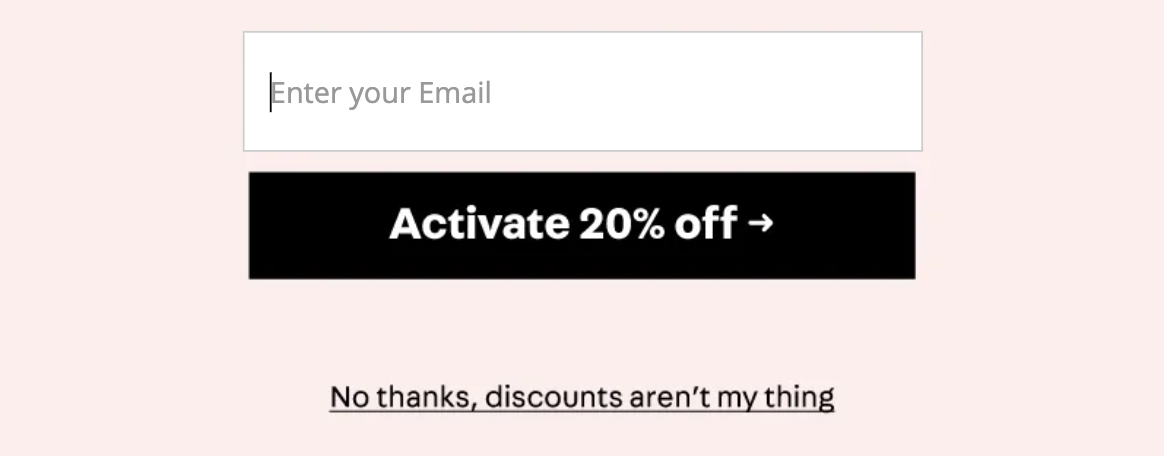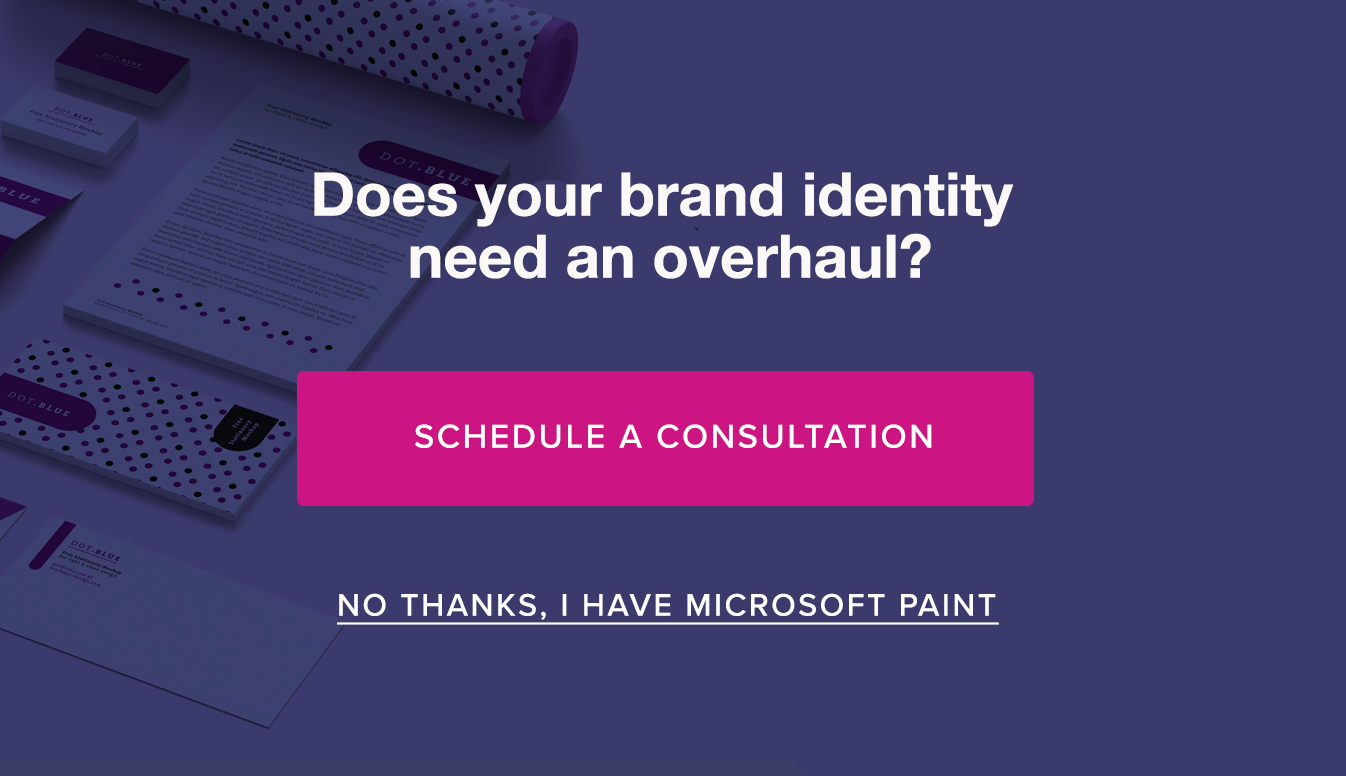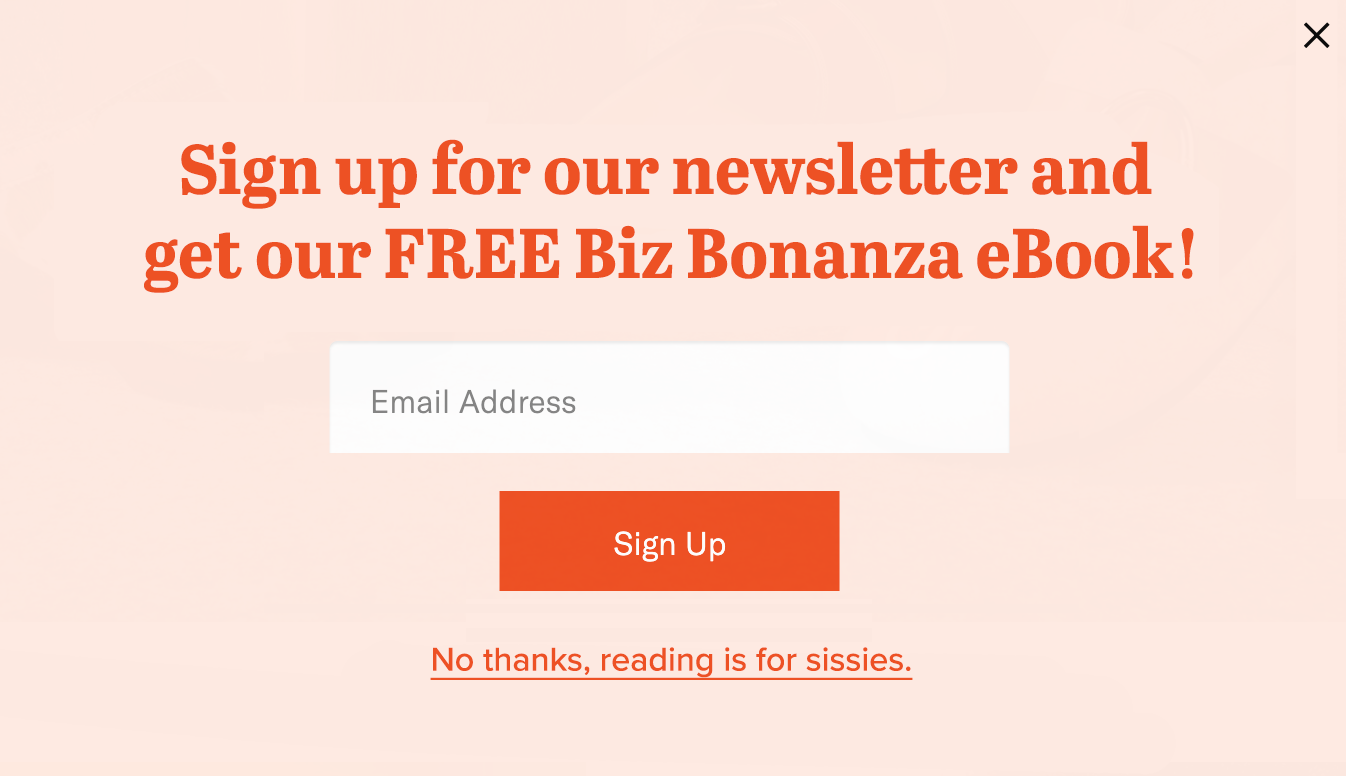I’ve been shopping online. Unsurprisingly, a parade of website pop-ups asked for my email address. I was 80% annoyed, 20% amused by the ones that gave an ultimatum: fork over your email address or admit that you suck. Looks like “confirmshaming” is still a practice in 2020.
Here’s a pop-up I saw:

“No thanks, discounts aren’t my thing.”
OF COURSE I like discounts, you pesky little pop-up. I felt a flare of irritation and clicked “no thanks.”
But it also made me curious. “Confirmshaming” or “clickshaming” is the practice of writing a negative consequence into the text link that closes a pop-up. Someone clever named those links “manipulinks.” Is this sales tactic actually effective? After a quick Google search, I couldn’t find any hard data. Even if it yields a few extra email sign-ups, I can’t imagine anything good can come of this practice long-term. Brands that want to be loved don’t insult their customers.
But for marketers who want to try it, why settle for subtle shaming? Let’s take it to the next level! I’ve made some options.

15% off? No thanks, I like my crappy furniture.

Just doing my part to create a recession.

No expert needed. I’ve got this.

I only watch videos, sorry.

It’s been a long day and I’m pretty selfish.
If the shaming tactic really is effective, I should probably try harder in my everyday life.
“Do you want my extra tulip bulbs, or do you like your ugly yard?”
“Would you like bagels for breakfast, or are you a Nazi?”
I’ll give it a try.
Oh! I almost forgot.
Do you want to sign up for my newsletter, or do you like missing out on everything?
